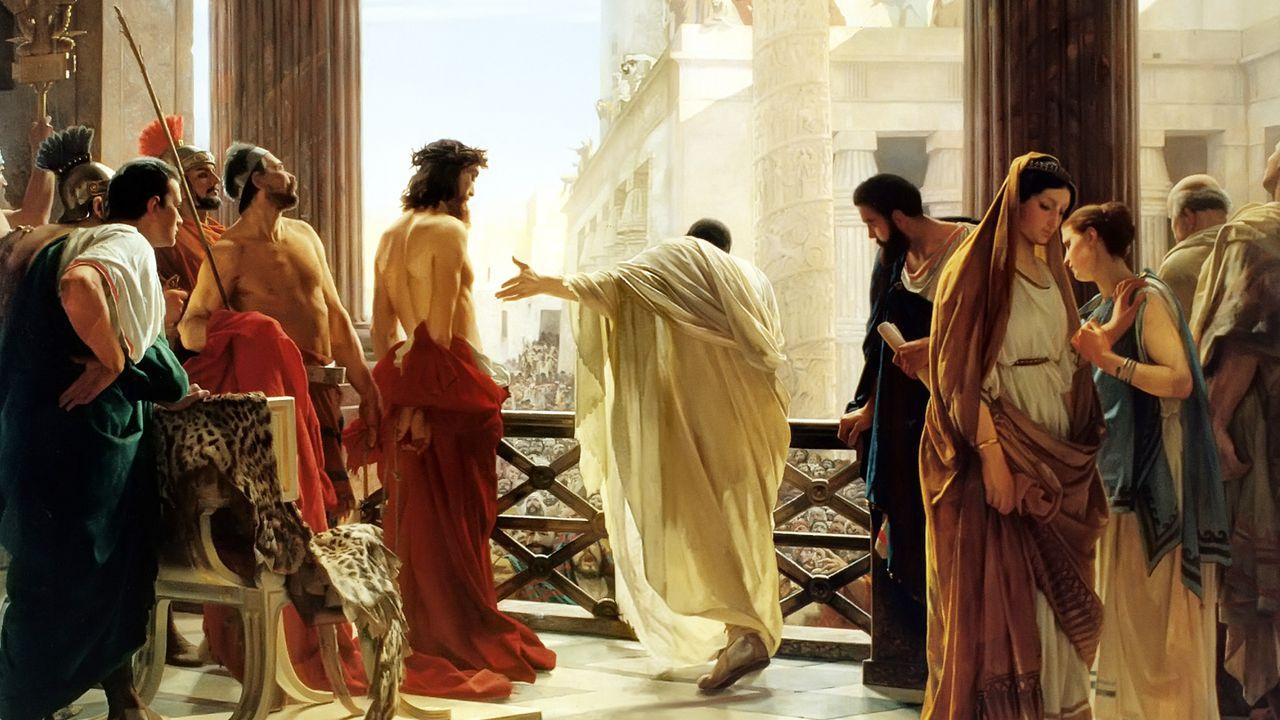Easter ArtifactsSample

Crucified Man

The significance of the cross cannot be overstated for a person who believes the collective sin of the world was nailed to a single cross in Jerusalem during the first century AD. The Son of God, Jesus, experienced execution by crucifixion.
An artifact discovered in 1968 brought the first century form of crucifixion to our present-day lives.
Construction workers were working on a project in a suburb north of Jerusalem. To their surprise they accidentally uncovered a Jewish tomb dating to the first century. Inside the tomb was a stone ossuary (bone box) bearing the Hebrew name John. Inside the ossuary were found the skeletal remains of a man in his twenties who had been crucified. How did they know the young man had been crucified?
The man, stunningly, still had a nail driven through his right heel. The iron nail measured 11.5 centimeters (4.53 inches) in length. Why was the nail still in his heel? The end of the nail was bent. It looks like what happened is while the nail was being driven into the cross the nail hit a knot in the wood and bent. The people burying the man left the nail in place.
Remains of olive wood, additionally, were found between the head of the nail and the heel bone.
These bones found outside Jerusalem, amazingly, can be dated to a time very close to the time of Jesus. This young man was crucified in a way slightly different from Jesus. His feet were nailed individually to the outside of the cross. His arms appear to have been tied by ropes. His arms wouldn’t have experienced the same pain Jesus experienced, yet it probably took him much longer to die.
Significance of the Discovery
This artifact proves that death by crucifixion was happening in the exact city and at the exact time mentioned in the New Testament. As we look at the nail driven into this foot we can only imagine if the same man swung the hammer placing nails in the arms and feet of Jesus. Were the nails forged by the same blacksmith? We will never know.
This artifact gives us more confidence toward the historical reliability of Jesus’ death on the cross which has bought us life.
Scripture
About this Plan

What artifacts do we have that support the amazing events of Easter? This 5 day devotional walks you through five significant artifacts and the role they play to show us the reliability of the events of Easter week.
More
We would like to thank Tim Kimberley and Plough Boy Resources, Inc. for providing this plan. For more information, please visit: http://www.ploughboy.org
Related Plans

At the End

Revelation Through Song in 7 Days

Come, Holy Spirit

And He Shall Be Called: Advent Devotionals, Week 5

Meaningful Morning (Mercy Series)

Obtaining Mercy

One-Year Bible Reading Plan: Discovering Jesus Throughout the Bible

Living in God’s Presence

Go Tell It on the Mountain
